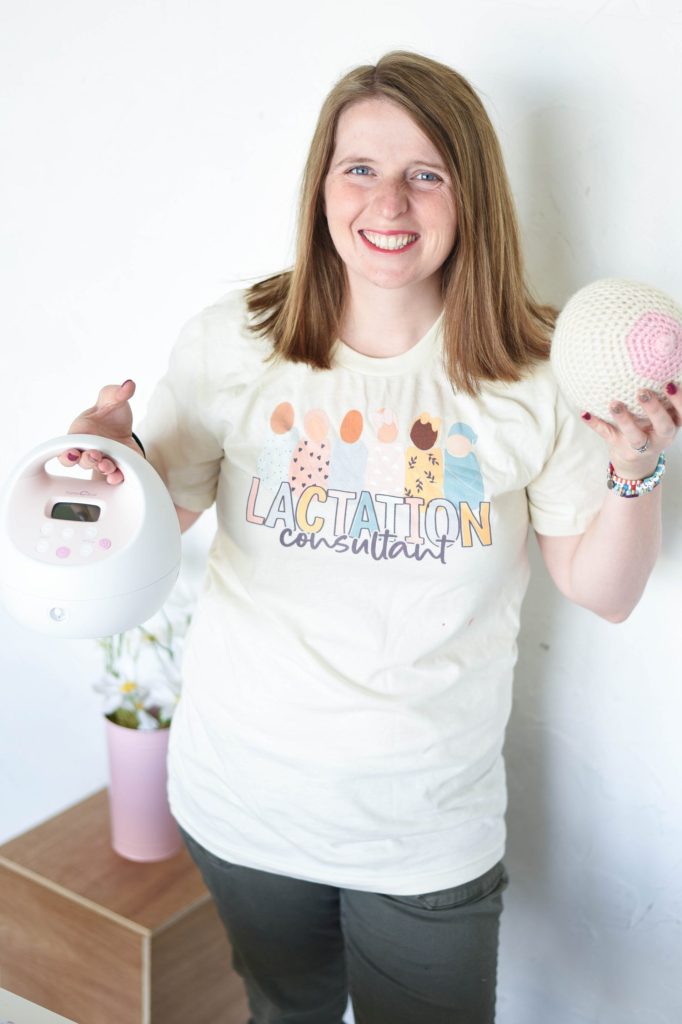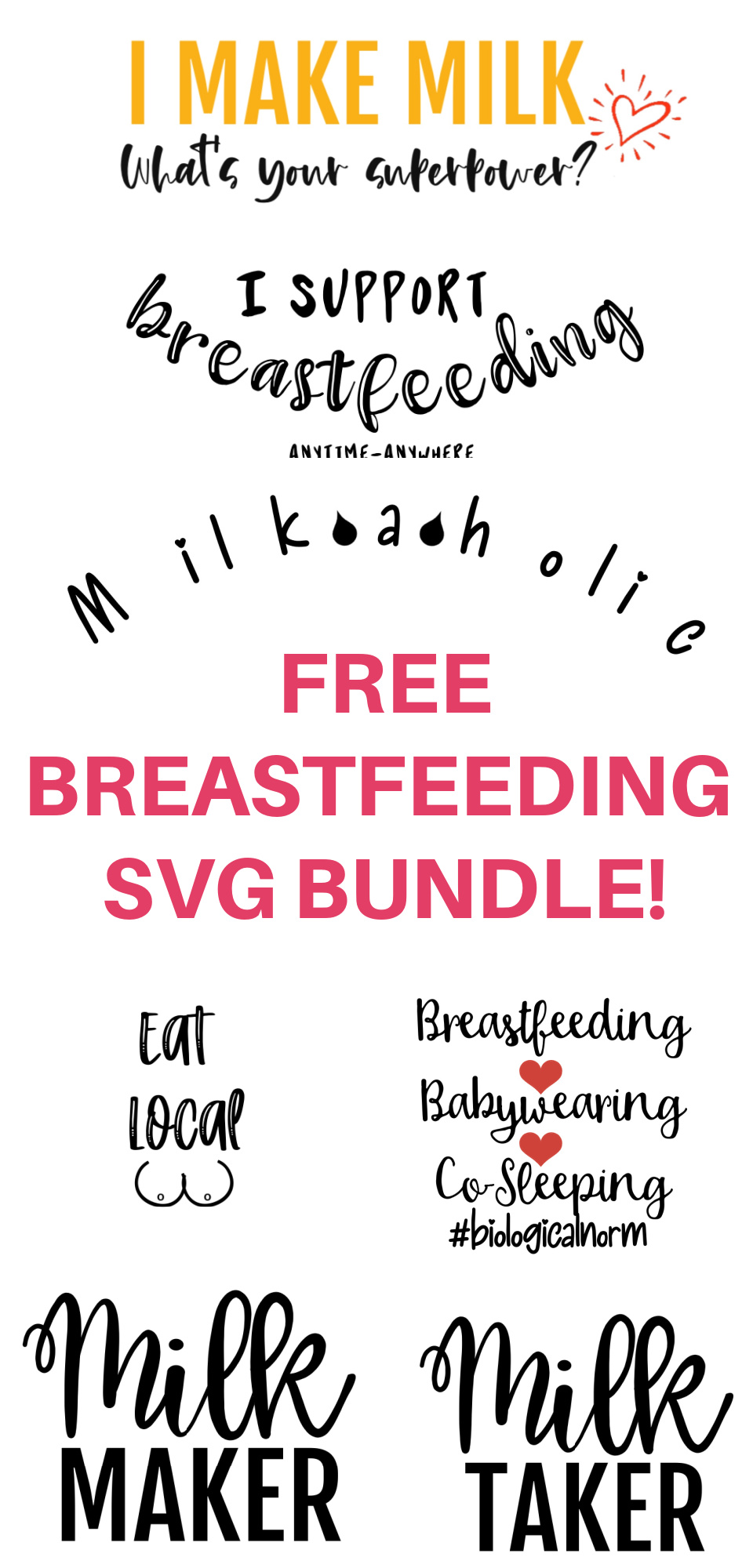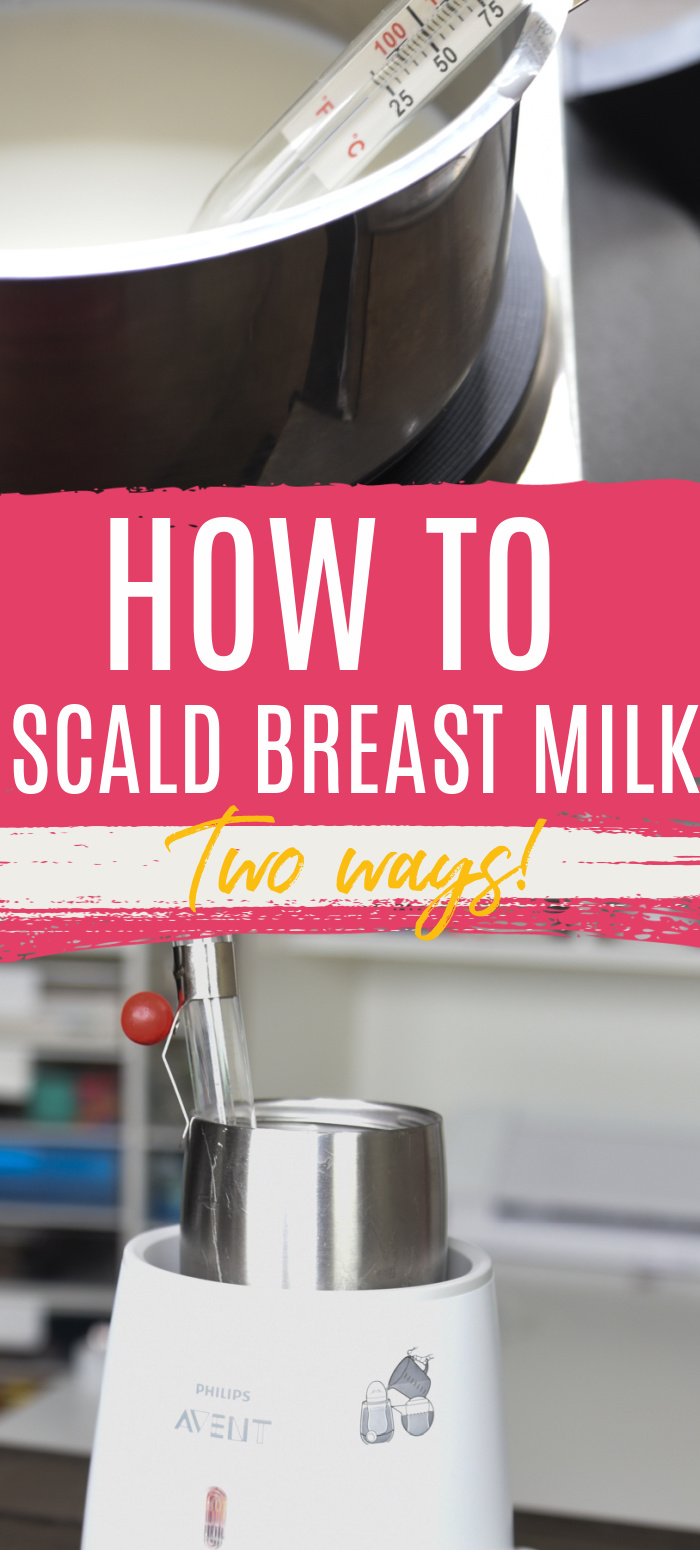There are plenty of reasons to breastfeed – and the benefits for the baby are important to understand. In this article, we will be sharing some of the top breastfeeding benefits for infants to help you understand why choosing to breastfeed might be an important choice for your family.

Breastfeeding has many benefits for both mom and baby.
I have previously shared many of the proven benefits of breastfeeding for mom – and today, we’ll be focusing on the benefits of breastfeeding for the baby – which can follow the child for his or her entire life!
Not all are as obvious of others, but breastfeeding can give your baby the best start to life. While everyone has to make the right choice for their family, sometimes understanding the benefits can encourage a longer breastfeeding duration.
It can also be helpful to understand the benefits so you can explain them to others who may not quite understand your decision to breastfeed.
It’s made just for them!
This is one of the things I love the most about breastfeeding – what other food in the world adapts to be exactly what the person needs? I can’t think of anything.
It changes as your baby changes – even when they are sick, it adapts and starts to make antibodies for them based on what they are sick with. You are making something that is created just. for. them. People can argue all they want about other benefits, but this one is so valuable to remember.
When the saliva of the baby comes in contact with the breast, it tells the body to start making milk that meets the baby’s needs1. And even if you pump, research shows that simply kissing your baby can do the same thing!
When I share this benefit, sometimes I will be asked, “Well what about donor milk? Or milk that was pumped months earlier? Is it still beneficial?”
100%. While it may not be adapted perfectly to what your baby needs at that moment, it is still the optimal source of nutrition for infants and toddlers.
Nutrition
The nutrition your child gets from breast milk is unbeatable!
Breastmilk is made up of the perfect mix of vitamins, proteins, and fats that your baby needs.
It’s created specifically for the needs of a human baby, and it’s pretty incredible. You can even look at other mammals, and the breast milk produced has different attributes that are specific to the mammal being fed.
Fewer Infections
Research shows2 that breastfeeding and breast milk helps lower the risk of illness and infections. While it doesn’t eliminate the risk entirely, it does decrease the risk.
Babies that are breastfed for the first six months usually have fewer ear infections, fewer respiratory issues, and fewer allergies.
Better for Premature Babies
Breast milk is highly recommended for premature babies. It is recommended because of its perfect formulation of nutrients and proteins to help your baby get everything they need!
If your baby is born early, your breast milk actually contains some of the colostrum longer to help give your baby higher fat milk to help them grow and help their underdeveloped immune system develop.
Pre-term babies are at a higher risk of developing a life-threatening infection (NEC)3. Breast milk has been shown to help prevent this.
Strong Mom / Baby Bond
Breastfeeding does help to develop a strong bond between mother and baby. There is a beautiful bond between an infant and his or her mother regardless of the method of feeding, but breastfeeding does help facilitate that.
While you are breastfeeding there is more skin-to-skin contact with mom and baby. Not only that, but while you are breastfeeding you are actually holding your baby closer creating a stronger physical bond.
When you are breastfeeding you have to hold your baby much closer to your face, which is the perfect distance so that your baby can see you, creating a special bond while they are breastfeeding.
Some research4 has even shown that the length of time breastfeeding (up to three years) can influence maternal sensitivity toward their child until age 11. Pretty cool!
Long-Term Benefits of Breastfeeding
Better Dental Health
One of the benefits of breastfeeding for babies is better dental health. Breastfeeding actually helps fight tooth decay because the lactoferrin which is found in breast milk which actually kills the bacteria helping prevent tooth decay. This also helps prevent cavities.
There are some that will tell you that breastfeeding at night causes cavities, however, the evidence shows that it is not simply breast milk causing this – but more an overall diet. This is a great article that discusses breastfeeding and cavities.
Breastfeeding also encourages proper jaw development, which may lead to less need for orthodontia down the road.
Lower Risk of Obesity
There is a lower risk of obesity in breastfed babies5. Breastfed babies learn how to regulate their food intake much earlier in life. They learn very early to eat until they are satisfied and then stop. Babies are naturally intuitive eaters! Because of how breastfeeding works, they can control the flow a little easier than when fed with a bottle.
Bottle-fed babies are at an increased risk of obesity in part because it is much easier to overfeed a bottle-fed baby. However, please don’t take this as saying that because you are giving a bottle means your baby will be obese. You can teach healthy habits to your child regardless of how they were fed as an infant.
Babies who breastfeed also are more likely to have bacteria in their gut that prevents obesity6.
If you do bottle feed, make sure you remember to pace-fed the bottle. This will mimic breastfeeding more. Here is a great video on this topic.
Improved Cognitive Development
There is research7 that shows that infants who are breastfed have improved cognitive development over children who were never breastfed. There are obviously various factors that can be involved, but this has been shown in various research studies8.
Type 1 and 2 Diabetes Lessened
Breastfeeding can also decrease the risk of Type 1 and 2 Diabetes9.
My second child was IUGR, and I had Gestational Diabetes with my third. Both of these factors put my children at an increased risk of obesity and Type 2 Diabetes, so breastfeeding them has been very important to me in order to help give them the best chance possible to avoid those problems.
Decreased Risk of Asthma
Asthma can be a really difficult chronic illness to manage, especially with children. Breastfeeding is linked to a decreased risk of developing asthma10, which is great news.
Decreased Risk of SIDS
SIDS is a fear that most new parents encounter at one point or another during the first year. SIDS incidences are higher in formula-fed babies over those who are breastfed according to research11.
Decreased Risk of Cancers
The risk of certain cancers – such as childhood leukemia – is lessened with breastfeeding. The decrease in risk was associated with breastfeeding for six months or longer12.
Higher IQ
Breastfeeding is often correlated with a higher IQ13. This one is always received with mixed feelings, and in no way will feeding formula make your child unintelligent. But there does seem to be a link between the two, especially with babies who are breastfed for longer.
The same research showed a higher social intelligence score as well14.
Brain Development
There is a lot of research that shows that breast milk is designed specifically to help a new baby’s brain develop correctly.
Breastfeeding has many benefits for baby. While formula can be a good/important option for some families, there are aspects of breast milk and breastfeeding that can’t be replicated. I hope that this article has helped you to feel a little more informed about the benefits of breastfeeding for babies.
Sources
1 – “You are what you eat…and so is your baby“
2 – Li, Ruowei et al. “Breastfeeding and risk of infections at 6 years.” Pediatrics vol. 134 Suppl 1,Suppl 1 (2014): S13-20. doi:10.1542/peds.2014-0646D
3 – Altobelli, Emma et al. “The Impact of Human Milk on Necrotizing Enterocolitis: A Systematic Review and Meta-Analysis.” Nutrients vol. 12,5 1322. 6 May. 2020, doi:10.3390/nu12051322
4 – Weaver, J. M., Schofield, T. J., & Papp, L. M. (2018). Breastfeeding duration predicts greater maternal sensitivity over the next decade. Developmental psychology, 54(2), 220–227. https://doi.org/10.1037/dev0000425
5 –The real link between breastfeeding and preventing obesity
6 – von Kries, R., Koletzko, B., Sauerwald, T., von Mutius, E., Barnert, D., Grunert, V., & von Voss, H. (1999). Breast feeding and obesity: cross sectional study. BMJ (Clinical research ed.), 319(7203), 147–150. https://doi.org/10.1136/bmj.319.7203.147
7 – Quinn, P. J., O’Callaghan, M., Williams, G. M., Najman, J. M., Andersen, M. J., & Bor, W. (2001). The effect of breastfeeding on child development at 5 years: a cohort study. Journal of paediatrics and child health, 37(5), 465–469. https://doi.org/10.1046/j.1440-1754.2001.00702.x
8 – Belfort, M. B., Rifas-Shiman, S. L., Kleinman, K. P., Guthrie, L. B., Bellinger, D. C., Taveras, E. M., Gillman, M. W., & Oken, E. (2013). Infant feeding and childhood cognition at ages 3 and 7 years: Effects of breastfeeding duration and exclusivity. JAMA pediatrics, 167(9), 836–844. https://doi.org/10.1001/jamapediatrics.2013.455
9 – Diabetes Prevention and Breastfeeding – La Leche Leauge Canada
10 – Wilson, K., Gebretsadik, T., Adgent, M. A., Loftus, C., Karr, C., Moore, P. E., Sathyanarayana, S., Byington, N., Barrett, E., Bush, N., Nguyen, R., Hartman, T. J., LeWinn, K. Z., Calvert, A., Mason, W. A., & Carroll, K. N. (2022, August). The association between duration of breastfeeding and childhood asthma outcomes. Annals of Allergy, Asthma & Immunology, 129(2), 205–211.
11 – M.M. Vennemann, T. Bajanowski, B. Brinkmann, G. Jorch, K. Yücesan, C. Sauerland, E.A. Mitchell, and the GeSID Study Group; Does Breastfeeding Reduce the Risk of Sudden Infant Death Syndrome?. Pediatrics March 2009; 123 (3): e406–e410. 10.1542/peds.2008-2145 – SIDS
12 – Su, Q., Sun, X., Zhu, L. et al. Breastfeeding and the risk of childhood cancer: a systematic review and dose-response meta-analysis. BMC Med 19, 90 (2021).
13 – Uauy, R., & De Andraca, I. (1995). Human milk and breast feeding for optimal mental development. The Journal of nutrition, 125(8 Suppl), 2278S–2280S. https://doi.org/10.1093/jn/125.suppl_8.2278S – brain development
14 – AlThuneyyan, D. A., AlGhamdi, F. F., AlZain, R. N., AlDhawyan, Z. S., Alhmly, H. F., Purayidathil, T. S., AlGindan, Y. Y., & Abdullah, A. A. (2022). The Effect of Breastfeeding on Intelligence Quotient and Social Intelligence Among Seven- to Nine-Year-Old Girls: A Pilot Study. Frontiers in nutrition, 9, 726042. https://doi.org/10.3389/fnut.2022.726042 IQ







